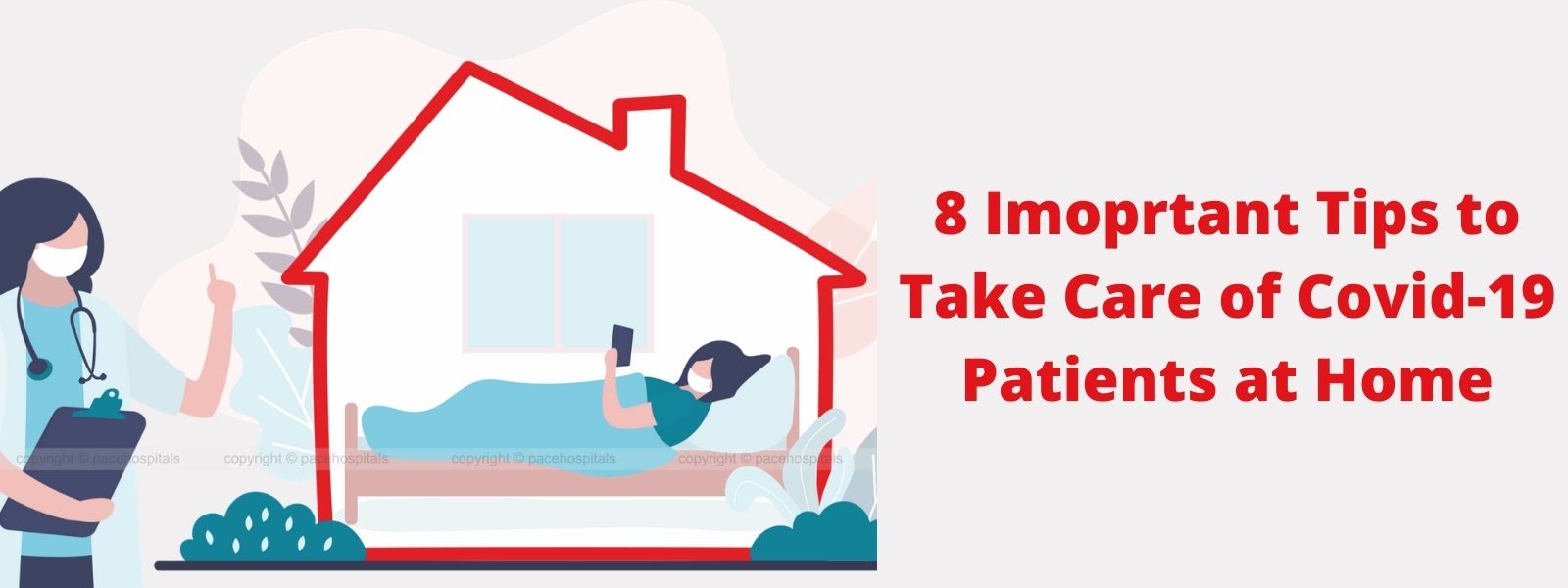Dr. Khade Superspeciality Hospital is one of the renowned and NABH accredited hospital in Chakan, Pune. The medical excellence of our doctors and dedication of our staff makes us best hospital in chakan. Our mission at Khade Superspeciality Hospital is to provide healthcare of International standards through a team of qualified professionals at an affordable cost.
We are all facing the global pandemic Covid 19. Khade Superspeciality Hospital is committed to take care of covid patients. As the international health agencies like the World Health Organisation (WHO) and Centres for Disease Control and Prevention (CDC) have agreed that patients with mild or no symptoms can be self-isolated and treated at home or in a non-healthcare setting.
If you have Covid 19 and you’re caring for yourself at home or you’re caring for a loved one with COVID-19 at home, you might have questions like What can you do to prevent the spread of germs? How can you support a sick loved one and manage your stress? Here’s what you need to know.
1. Pick a sick room:
The covid patient should stay in a bedroom with a door if possible, and will not come out except to go to the bathroom. nobody else should spend unnecessary time in the sick room. Children and pets should stay out. Keep a window open in the sick room if possible, to stay air circulating. try to provide tissues.
If you don’t have more than one bedroom, give them the bedroom, and you can sleep on the couch or other temporary spot like an inflatable mattress, so you’ll still use the front room, kitchen, and other spaces while they stay in their room.
2. Pick a sick bathroom:
If you’ve got two bathrooms, make one among them the sick person’s bathroom, and don’t let anyone else use it. If you don’t have two, you’re going to need to clean every surface they touch after they are going to the toilet, so it’s clean once you or other people you live with need to use it.
3. Help them track their symptoms:
Have them take their temperature several times each day, without getting near to them. Write down the readings, and note whenever new symptoms occur.
4. Help them hydrate:
confirm they’re drinking plenty of water and other non-alcoholic clear liquids.
5. Keep them comfortable and entertained:
while keeping your distance: make sure they have blankets and pillows, books, magazines, and a computer or TV to pass the time, and a charger for his or their phone near their bed, so you don’t need to go in and out of the room. Keep the house or apartment quiet in order that they can sleep.
6. Help them with food, but keep your distance:
Find a tray or cooking utensil that you simply can use to bring them food or drinks once they need it.
If they can get out of bed: Put the food and drinks on the tray, and place it outside their closed door. Walk away. they will open the door, get the tray, dine in their room, then put the tray back on the ground outside the door and shut it.
If they can’t get out of bed: Wear a mask or cloth over your mouth and nose once you enter their room, and have them cover theirs too. Bring their food and drink to their bedside table, and return after a short time to select it up again, wearing a mask or cloth again. Wash their dishes thoroughly with predicament and soap. Don’t touch your face after handling their dishes, and wash your hands thoroughly after you touch anything they ate or drank from.
7. Keep their laundry separate:
Bring changes of clothes and pajamas to them if they’re not already in the sick room. Get your clothes out of the sick-room if they’re usually stored there.
Make sure they need a basket, hamper or bag within the sick room to place clothes, towels, washcloths, and bedding in. Have them put it outside their door when it’s full, or wear a mask or cloth over your mouth and nose once you enter to urge it. Wash their clothes, towels, and bedding separately from anyone else’s.
8. Say no to visitors:
You shouldn’t be having guests over anyway, or people working inside your home. If you have to check someone in person, do it outside your home, preferably outdoors, and stay at least six feet far away from them. If they’re bringing you something, ask them to place it down and step away so you’ll be able to pick it up.


